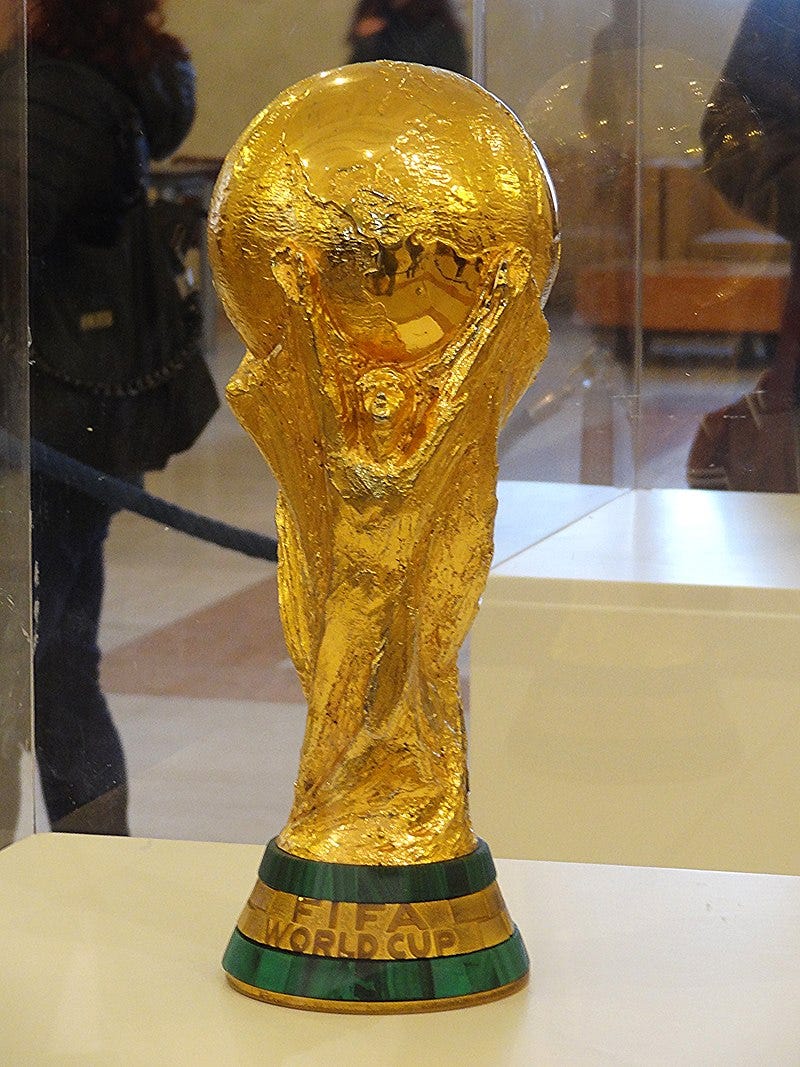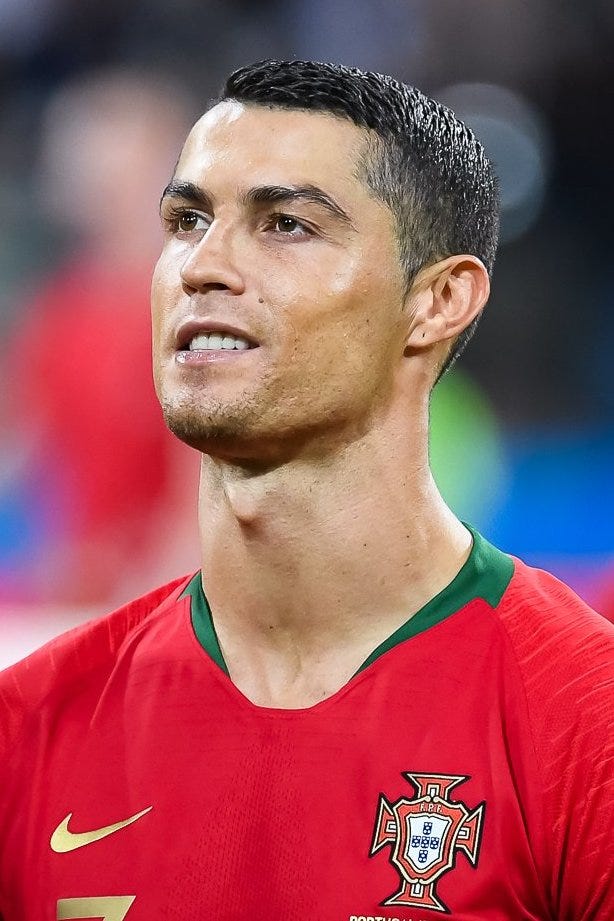In the US we were big sports fans. We’ve become uncomfortable with football and hockey due to all the brain injuries. Not having a local pro basketball team, we’ve grown away from the NBA. But baseball, baseball still has our hearts.
In Portugal, the sports situation is a little different - no football, hockey, or baseball, unless you head to certain bars. There are a couple of basketball courts scattered about but no major professional teams. That leaves us with the one local sport: soccer.
Like the vast majority of Americans, we had little regard for soccer. Until we decided to move to a place where the sport was seemingly all-important, we were aware that it existed and that it Mattered a Great Deal to Many People, very few of whom we actually knew.
As we prepared to leave the US, our hometown was in the process of ramping up St. Louis CITY FC, the newest entry in Major League Soccer, the (currently) 28-team league that is the highest level of professional soccer in the United States. (Did you know there are nearly 30 pro soccer teams in the US?) That team will play its first game in 2023. The phenomenon was coming closer to us and while we were excited to learn more, we still knew almost nobody else who cared about the sport.
Now that we’re in Portugal things are different, though not necessarily in the ways we were expecting they would be. Before we can adequately explain our experiences, though, we need to lay a foundation.
We’ll start here: Americans are the only ones to call the sport “soccer.” To the other 7.7 billion humans on Earth it’s “football” (the sport that’s played in the US on Sundays is called “American football”).
In Portuguese, the word is futebol.
Futebol em Portugal
Any discussion of contemporary futebol in Portugal must begin with Cristiano Ronaldo dos Santos Aveiro. Like other larger-than-life personas - Beyonce, Bono, Pelé - he has transcended the need for multiple names and is known simply as Ronaldo. The length and depth of his extraordinary career is perhaps best encapsulated by this remarkable fact: Last Thursday, Ronaldo became the first person (edit: man) to score a goal in five different World Cup tournaments.
Let’s unpack that.
The World Cup
The World Cup is like the Olympics in four important ways:
it happens every four years
it involves teams from all over the planet (unlike, say, baseball’s “World Series” which, at best, would feature teams from only the US and Canada)
competing players must be eligible citizens of the countries they represent, which means that
national unity and pride is on the line. Fans of rival franchises - Celtics/Lakers, Blues/Blackhawks - can set aside their differences and root together for Team USA to bring home the gold. And casual fans, people who may never choose to step into an arena to see a live contest, will tune in.
It is unlike the Olympics in that it is for one sport only: football.
The first World Cup was in 1930; it began out of a desire to allow professional athletes to compete at a global level - the Olympics was at the time open only to amateurs. It is organized by FIFA, the Fedération Internationale de Football Association. Other than a break in 1942 and ‘46 due to WWII and its immediate aftermath, it has been held every four years.
Since its birth 92 years ago, the tournament has been gradually expanding in size. In 1930, 14 teams participated; in 2026, 48 will qualify. This year, 32 squads have converged on Qatar to compete for the solid gold trophy.

Today, there are 211 members of FIFA. For the 2022 World Cup, this giant field of eligible teams was winnowed to the 32 finalists through a series of regional tournaments, a process that began three years ago and which can get rather complex.
For example, 55 nations including Portugal competed in the Union of European Football Associations (UEFA) tournament that ultimately determined 13 of the World Cup’s 32 qualifiers. Portugal’s first contest in that tournament was on March 24, 2021. They played eight games and failed to win their group, losing their final contest to a weaker team - in Lisbon, for cry eye. Consequently, they were forced to qualify for the World Cup by winning two additional games in March 2022. The entire country of Portugal was in limbo for a year before their national team officially qualified to participate in the 2022 World Cup.
Because the World Cup finalists are determined by their on-field play over multiple games, the teams represented are generally both strong and playing well: only seven of the 32 teams in the 2022 tournament are ranked outside the top 32 in FIFAs complex ranking system. These seven include Qatar (ranked #50), which, as the host nation, automatically qualifies, and Saudi Arabia (#51), the second-lowest ranked team in the field. Saudi Arabia defeated Argentina (#3) last week in what has been called the biggest upset in World Cup history. In short, there are no weak teams in the World Cup and accurately predicting the outcome is every bit as challenging as your office NCAA tournament pool.
Portugal is currently ranked #9 in the world. Had they missed out on the tournament, it would have been a huge blow to the country. Just ask Italians how they feel about their team (#6) not qualifying.
The 2022 edition is the 22nd World Cup tournament ever played. Ronaldo (Remember Ronaldo? This is a story about Ronaldo.1) is one of only six people (edit: men)to even compete in five of those and the only person (edit: man) to score a goal in five different World Cups.
On November 24, 2022, Ronaldo became the first man to
score a goal in five different World Cup tournaments.
So he Scored Some Goals, What’s the Big Deal?
One of the reasons Americans give for not enjoying football is the relative lack of scoring. While it’s certainly possible for a baseball game to end 1-0, baseball teams have also on occasion scored 10 or more runs in a single inning. That doesn’t happen in football, where a team scoring even five goals in a 90-minute match is uncommon.
In a World Cup game, against the toughest competition humanity can offer, there’s no guarantee that a team will score at all (Portugal has been shut out in five of Ronaldo’s 19 World Cup contests to date), and the best players are usually closely guarded to try to minimize their impact on the game. The upshot is that the odds of a specific player scoring a goal in any particular football match are low.
In 2006, Ronaldo’s first World Cup, Portugal played seven games. During those seven games, the team scored a total of 10 goals. By lasering a penalty kick into the upper-left corner of the net Ronaldo became, at 21 years and 132 days, the youngest player to score for Portugal in a World Cup.
In 2010, Portugal played four games before being eliminated and scored a total of seven goals. Ronaldo (barely) scored once.
In 2014, Portugal managed only four goals in their three games. Ronaldo scored one.
In 2018, Ronaldo tallied an extraordinary four of his team’s six goals during their four-game run, including a hat trick (three goals) in a 3-3 tie vs Spain.
On November 24, 2022, a nation the size of Indiana held its collective breath as Ronaldo lined up for a penalty shot in the 65th minute of a 0-0 tie with Ghana. By lasering his kick into the upper-left corner of the net he became, at 37 years and 292 days, the oldest player to score a goal for Portugal in a World Cup.
Summary: Ronaldo has participated in 19 World Cup games to date over five different tournaments spanning 16 years. His team has scored a total of 30 times over those contests. He has netted eight - 35% - of those goals, at least one of which has been scored in each tournament.
Charismatic, quadrilingual (he speaks Portuguese, English, Spanish, and Italian), and comfortable in the white-hot spotlight of global stardom, Ronaldo is an icon beyond just Portugal. With over 503 million people hanging on his every post, he is currently the most-followed user on Instagram, and his number 7 was the tenth-best selling jersey worldwide in 2014. When he moved from one professional team (Spain’s Real Madrid) to another (Italy’s Juventus) in 2018, the transfer set two (since-broken) records:
it was the most-expensive transaction ever; Juventus paid €117 million to bring him to Italy, and
Juventus sold 520,000 Ronaldo jerseys in the first 24 hours after the deal was inked, earning them back nearly half of the hefty fee they'd paid to acquire him. (Football. It’s a big business.)
So storied are Ronaldo’s exploits on the pitch that a recitation of his accomplishments merits its own (lengthy) entry on Wikipedia: https://en.wikipedia.org/wiki/List_of_career_achievements_by_Cristiano_Ronaldo
The fact that he's objectively good-looking doesn't hurt, either.

Ronaldo’s story is far from over; it’ll get darker soon, in fact.
And futebol em Portugal is far more than merely Ronaldo.
It is time, however, for a little break.
That’s all for now.
Love from Lisbon,
Scott & Amy
P.S. Click here for part two of this series.
The Alice’s Restaurant reference is for you, Aunt Clare. Thanks for following along so closely and for all your comments!





What happened to poor Marta Vieira da Silva?
Love it! Just getting to this post now so I could savor it during a respite in the day. I do believe they have named the airport in Madeira, Ronaldo's birthplace, after this intergalactic star. And glad that Marta's achievement for the Brazilian women's team has received more attention now that Ronaldo is the second human to score goals in five World Cup tournaments.